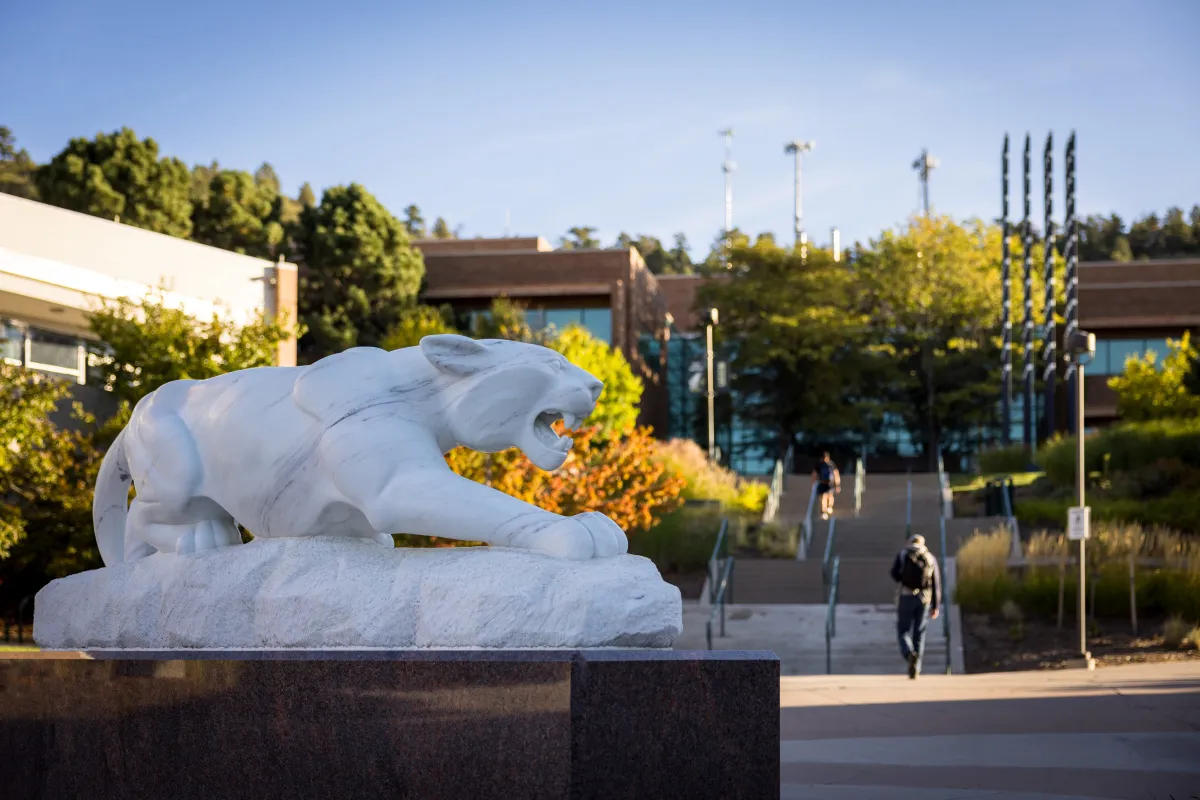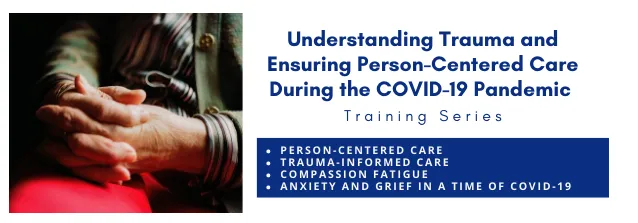
Archived Events
Spring 2025 Gerontology Speaker Series
March 17: Using Fruit Flies to Uncover Roles for the Gene caper in Neurodegeneration and Aging
Eugenia Olesnicky, PhD
University of Colorado Colorado Springs Biology Department
Gerontology Center Faculty Affiliate
Click Here for Recorded Presentation
April 22: Living Well Under Stress: Associations Between Stress, Health, and Well-being in Older Adulthood
Kyrsten Hill, PhD
University of Colorado, Colorado Springs Psychology Department
Gerontology Center Speaker- Dr. Kyrsten Hill-20250422_150116-Meeting Recording
Fall 2024 Gerontology Speaker Series
October 22: Caregiving: Burden, Loss, and Possibilities
Leilani Feliciano, PhD
Director of Clinical Training and Professor of Psychology
Gerontology Center Faculty Affiliate
The caregiving literature is fraught with negative outcomes including increased burden, loss, anticipatory grief, and depression. However, there are also potential positives including growth and adaptation. This talk will discuss recent research examining caregiver experiences with a particular focus on the good, the bad, and the possibilities.
Fall 2023 Gerontology Speaker Series
October 10: Activating Wellness in Older Adults presented by Paige Whitney, PhD and Students
UCCS's Dr. Paige Whitney and her student, Katherine Briner discuss areas of health pertaining to older adults including diet, exercise, and sleep.
GeroCenterActivatingWellness10.10.23pdf.pdf
Spring 2023 Gerontology Speaker Series
April 11: Presentation by Siobhan McMahon, PhD, RN; University of Minnesota School of Nursing
In Search of Effective Strategies for Promoting Physical Activity in Older Adults: Research in Progress
Associate Professor of Nursing and Co-Director of the Center of Aging Science and Innovation, Dr. Siobahn McMahon, will present ongoing research into promoting physical activity in older adult populations.
The Recorded Presentation
February 14: Presentation by Katie Granier, MA, PhD Candidate, UCCS Department of Psychology
Worry and Aging: Common Patterns, Why We Worry, and What To Do About It
UCCS Clinical Psychology Ph.D. student, Katie Granier, speaks about what worry is, theories about why we worry, what worry looks like in older adults, outcomes related to worry, and strategies for managing it.
Fall 2022 Gerontology Speaker Series
October 11: Presentation by Lisa Stone, MA, PhD Candidate; UCCS Department of Psychology
Biopsychosocial Perspectives on Assessing Mental Health among Older Adults
The biopsychosocial perspective is a framework for explaining mental health that recognizes the biological, psychological, and social influences on an individual's life. The biopsychosocial framework is particularly useful for examining mental health among older adults, given their complex and rich life experiences. This presentation will discuss how the biopsychosocial context of later life impacts mental health assessment for older adults, discussing prior research on anxiety and depression and presenting original data on personality disorders.
November 8: Presentation by Rachel E. Thayer, PhD (she/her/hers); Assistant Professor of Neuropsychology; UCCS Department of Psychology
Join us on November 8, 2022 from 3:00 - 4:00 PM MST for The Latest Scoop on Cannabis Use: Health Considerations for Older Adults. Aging adults are the fastest growing demographic who use cannabis, but research on cannabis and health has largely focused on adolescents and emerging adults. In this brief presentation, Dr. Rachel Thayer will discuss the state of research and latest findings on physical, mental, and cognitive health impacts of cannabis use for older adults.
Spring 2022 Gerontology Speaker Series
March 9: Presentation by Marissa Pifer, MA (Doctoral student in Psychology at UCCS):
Anxiety and its Impacts on Late Life: Join us for this presentation covering topics on how anxiety presents among older adults, common sources of anxiety in later life, and how anxiety impacts other aspects of life such as physical health, mobility, functionality, and cognition.
April 13: Presentation by Dr. Tara Cepon-Robins (Assistant Professor in Anthropology at UCCS):
Early immune system development and later adult health: Testing the hygiene Hypothesis among older adults in Colorado Springs
The Hygiene Hypothesis explains, in part, how chronic inflammatory diseases are associated with living in "too clean" environments and not being exposed to as many immune priming pathogens and parasites during development. Little research has examined the long-term effects of this early immune priming (or lack thereof) later in life. This talk will introduce the hygiene hypothesis and discuss research in Colorado Springs that explores how environments and experiences during childhood may affect immune and intestinal health in late adulthood.
Fall 2021 Gerontology Speaker Series
October 5: Presentation by Dr. Nicole Erhart (Colorado State University Director of Center for Healthy Aging):
Great Danes and Granddads: How Comparative Aging Research is Moving the Needle in Longevity Therapeutics.
People are living longer than ever before, but this has not been accompanied by increased years of life without age-related disease. New discoveries indicate that what we once thought was irreversible (aging), may be reversed or delayed using new therapeutic approaches. However, little of these findings are being translated into widely available therapies. Researchers have learned that dogs are an effective model for human disease, and have begun to recognize their value in translating aging research to intervention. What would take decades to study in humans can be studied in 6-9 years in dogs. Thus, we have a pivotal opportunity to translate discoveries in anti-aging research to humans, while also helping dogs age healthier.
November 2: Presentation by Dr. Diep Dao (UCCS Department of Geography and Environmental Science Assistant Professor) & Dr. Gia Barboza (UCCS School of Public Affairs Assistant Professor):
Colorado Springs is a state with a high proportion of older persons – 11% of the population of Colorado Springs are seniors. In addition, the proportion of Colorado Spring’s population that is 60 and older is growing more rapidly than other components of the population. The results of this study represent a collaboration between Silver Key and UCCS undertaken for the purpose of examining how demographic and community-level risk factors vary by geographic region within the city of Colorado Springs, Colorado. Individual data on seniors receiving services was acquired from Silver Key and overlaid on neighborhood risk factors using ArcGIS. Interactive web-based mapping and correlation analyses reveal areas in high need of assistance and identify potential associations between aging risk factors and neighborhood characteristics.
December 7: Presentation by Stacy Yun, MA (UCCS Department of Psychology Doctoral Student):
Many people regardless of their age and cognitive status worry about their possibility of developing dementia in the future. This fear-like response to a dementia diagnosis is called dementia-related anxiety. During this presentation, we will discuss what dementia-related anxiety is, its key concepts, and main research findings in the current literature.
A Community Gathering of Song and Healing featuring Melanie DeMore
Voices of Grief Support and Education Center presents
A community Gathering of Song and Healing
featuring Melanie DeMore
Renowned singer, songwriter, and musical activist
Join us as we sing together in community, playfully transforming our grief with compassion, art, music, drumming and dance!
Music has a unique ability to inspire healing. Dynamic performer and teacher, Melanie DeMore, will harness the power of music to facilitate healing at a time when so many of us are navigating loss and grief.
Francis Weller says there is an intimacy between grief and aliveness, a sacred exchange between what's unbearable and what is exquisitely alive. Join us as Melanie brings her joy and energy to the very air you breathe.
Free Educational Webinars

Free Training Series
In partnership with Dr. Sheri Gibson, NORC published this free four-part series for three audiences (family members of individuals living in long-term care facilities, facility administrators, and direct care staff). In the series, Dr. Gibson provides training on the following topics: person-centered care, trauma-informed care, compassion fatigue, and anxiety and grief in a time of COVID-19. Each topic will include one webinar recording and slides for each audience.
See the below webpage for more information and training materials:
A BEHAVIORAL HEALTH DIABETES MANAGEMENT PROGRAM FOR LATINX OLDER ADULTS IN COLORADO SPRINGS
In Fall 2020, a group of doctoral students in the Geropsychology track of the Clinical Psychology PhD program at UCCS were tasked with examining the mental health needs of an underserved racial/ethnic older adult group within Colorado Springs and proposing a hypothetical program to meet these identified needs. The assignment was to identify an underserved population in Colorado Springs and utilize the current literature on clinical practice and available local and national data to generate culturally appropriate best practices for working with the targeted group and address barriers to treatment access and utilization within Colorado Springs. The student team identified the Latinx population as one of the largest and fastest growing minority groups within El Paso county and focused efforts on providing background information about how to best serve the mental health needs of this population. In addition, the team was tasked with detailing a mock consultation to a hypothetical funder to devise and recommend a potential program to meet the needs of the Latinx community based on these initial findings and proposed best practices. The proposed program was a behavioral health diabetes management program for Latinx older adults in Colorado Springs. The following video presentation is a recording of the final virtual presentation of the described project targeted toward members of the community with an interest in these issues. At the end of the recording, a brief Q&A session with the audience is shown.